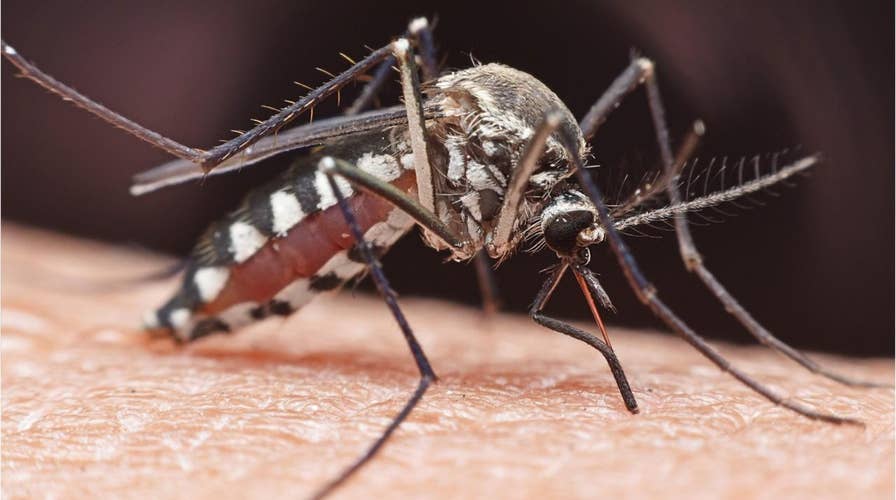How to keep mosquitoes away this summer
Hot and humid weather brings out those pesky mosquitoes. Here are a few simple tips to live a mosquito-free summer.
For the first time in a decade, the Florida Keys is experiencing its first outbreak of a potentially life-threatening mosquito-borne virus.
At least 16 cases of dengue fever were reported in the Florida Keys on Friday, according to the Miami Herald, which cited data from state health officials. The cases have been reported in Key Largo in the Upper Keys.
HERE’S THE CORRECT WAY TO USE HAND SANITIZER, ACCORDING TO THE CDC
The outbreak marks the first instances of dengue since 2010, per the newspaper. No one infected with the virus has died and all are expected to make a full recovery.
A spokesperson for the Florida Department of Health did not immediately return Fox News’ request for comment.
Dengue is spread through the bite of infected Aedes mosquitoes — the same species that are known to spread Zika virus and chikungunya, according to the Centers for Disease Control and Prevention (CDC). The virus is more common in tropical and subtropical regions, such as the Caribbean, Central and South America, and the Pacific Islands, among other places.
“In the United States, local spread of dengue occurs infrequently,” the CDC notes.
The virus can become life-threatening within a few hours, with symptoms that can include fever, nausea, vomiting, rash and aches and pains.
There is no specific treatment, but most people recover in roughly a week. That said, “about 1 in 20 people who get sick with dengue will develop severe dengue,” according to the federal agency.
“Severe dengue is a more serious form of the disease that can result in shock, internal bleeding, and even death. You are more likely to develop severe dengue if you have had dengue infection before,” it continues. “Infants and pregnant women are at increased risk of developing severe dengue.”
THE FDA NOW INCLUDES 75 ‘TOXIC’ HAND SANITIZERS ON ITS LIST OF PRODUCTS TO AVOID
Symptoms of severe dengue include vomiting, bleeding from the nose or gums, stomach pain and restlessness, among other signs.
The best way to prevent dengue and other mosquito-borne ailments is by draining standing water — like in birdbaths, buckets or on pool covers — as stagnant water can serve as a breeding ground for these insects. Other preventative measures include covering skin with long-sleeved pants and shirts while outside and using insect repellent containing DEET.









































